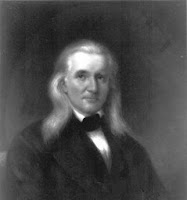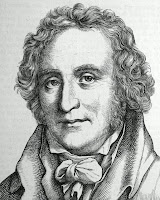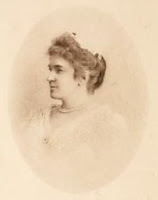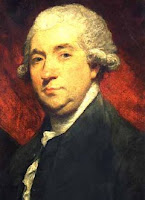At Firenzuola, a small bourg, where we breakfasted, we found comfortable and decent accommodations ; after leaving which a journey of twelve miles enabled us to reach Placentia (or as it is here called, Piacenza) by about four o'clock. This fine and cheerful town, containing about thirty thousand inhabitants, and situated in a rich plain watered by the Po, is celebrated for its antiquity ; of which however no monuments remain, and it is now built entirely of brick. We visited here the Cathedral, an old Lombard structure, and curious both within and without, ... the Church of St. Agostino, the façade of which, by Bagarotte, is of fine proportions, ... The great square, which is spacious, and inclosed on one side by the town hall, constructed of brick by Vignola, and having the Saxon arches of its windows very curiously wrought, contains the equestrian statues of Alessandro and Ranuccio Famese, mounted on fine pedestals, the work of Francesco Mola. They are of brass, and are much admired for their spirited attitude, and for the elegance of their draperies. After a pleasant promenade in the environs, we returned to our comfortable inn of " The Croix Blanc ".
Tuesday, April 28, 2009
from Two Journeys Through Italy and Switzerland ... by William Thomson, 1835
On the second day we quitted the imperial dominions, and soon entered the duchy of Parma, after crossing the river Po at Piacenza in a very antediluvian sort of barge. We passed through the town without making any halt, and in a short time the vettura was rolling over the ancient via Flaminia.
Monday, April 27, 2009
from Two Hundred and Nine Days By Thomas Jefferson Hogg, 1827

Monday, January 30... As we approached Lodi, we found the snow deeper ; at the Sun, a comfortable little inn, we met with a blazing fire in the sala, and several other travellers, the clients of vetturini, like ourselves: they were from Piacenza, and very civil persons ; they did not confine themselves to mere verbal courtesies, but produced some good, sound, strong wine, which was creditable to the Piacentine vineyards. The lieutenant spoke to me in his German, of which I understood as much as it was my destiny to comprehend, and I answered him in his own language; fortunately for him it had the desired effect; for the Italians asked him, if he did not understand English very well; he answered, no—with the tone and air of a man who does not wish to be believed; they replied, but you have been speaking English all the evening to this gentleman : I did not say any thing ; he therefore got the credit of understanding English ; and was so delighted with me for keeping his secret, and for my acquiescence in his harmless deception, that I narrowly escaped being kissed by him when he too.k leave.The cold, the fatigue of travelling, and the strong wine of Piacenza, induced drowsiness, and enabled me to sleep like a steed that does not dream of his tail:—
" This miller hath so wisely bibbed ale,
That as an hors he snorteth in his sleepe
Ne of his taile behind he tooke no kecpe."
n S
from A Spring in Rome and southern Italy by anonymous [New Monthly Magazine], 1869
At Piacenza the train crossed the Po by a suspension-bridge built over the old bridge of boats, which looked bright and busy as we flew above it, with the villagers in their gay dresses, leading across it horses harnessed to carts of very primitive make. Here the Appenines first came into our view, a low and graceful range still tipped with snow, on our right hand.
from The Farmers' register By Edmund Ruffin, 1839

About two miles from Piacenza we cross the Trebbia, the celebrated scene of Hannibal's victory ; but it is now no more than a torrent, which is dry during the summer, and in winter lays waste all the adjacent country; and not far from it is the Tidone, which covers the fields with sо much sand and gravel, that they are rendered quite unfruitful. It is observable, that almost all the rivers in the Parmesan and Piacentin, make so miserable a havock in the plains, by reason of the cutting down of the woods upon the mountains. 1 bad an opportunity of seeing a large range of them, and, in particular, the Canneto, which the Farnese family let to a company of miners, in search of copper. The design proved unsuccessful, and the woods were rooted up, to the lasting prejudice of the state.
from Travels through Germany, Switzerland, Italy, and Sicily by Friedrich Leopold graf zu Stolberg, 1796

LETTER XXXVIII.Parma, 19th November 1791.... On the 16th in the forenoon, we travelled to Placenza. The country between Milan and Lodi was every where one continued level. The horned cattle were all of a dark red colour. I have no where in Italy feen any motley coloured cattle. The fheep are large, entirely white, and with hanging ears. The fwine are all black, like the. Indian hen.We croffed the Po over a bridge of boats ; beyond which the town rofe, with a noble afpect. It was from its charming fituation, on the banks of this broad river, that the Romans gave it the name of Placentia. ...Placenza, as a city, is not fo beautiful as its fituation would promife ; when we view it from the Milan fide of the Po. It rather appears in ablate of decay.
from Memoirs of mr. Matthias d'Amour by Paul Rodgers, 1836
From Venice we travelled to Parma and Placentia. After we had passed the latter place, our gentlemen in the carriage, and myself on horseback, I observed some hills before us, which I saw we must necessarily pass over. At the first sight of them I thought we should have been there in a few hours, but was surprised when we had travelled a considerable way further, that they seemed as distant as ever. I said nothing to any one, not being willing to expose my own ignorance.
Saturday, April 11, 2009
from The Diary of Frances Lady Shelley, 1817

Next morning at five o'clock we left this old town, and drove for an hour in the dark. Although I had heard strange stories about brigands in these parts, I felt no fear, and slept all the time.
On that same day one courier was stopped near Cremona and robbed of twelve thousand francs ! As they did not take the letters, they had probably received information that he was carrying money. After Piacenza we crossed the Po, over a bridge composed of fifty-two barges. This bridge was made by the French two years ago. Formerly there was a ferry.
On that same day one courier was stopped near Cremona and robbed of twelve thousand francs ! As they did not take the letters, they had probably received information that he was carrying money. After Piacenza we crossed the Po, over a bridge composed of fifty-two barges. This bridge was made by the French two years ago. Formerly there was a ferry.
from Sights and sensations in Europe by Junius Henri Browne, 1871
from The diary of a Russian lady; by Varvara Fedorovna (Golitsyna) Dukhovskaia, 1876 (1917)

During dinner that same day, I saw by the expression of Sergy's face that he was preparing a surprise for me. And, in fact, he made me awfully happy by announcing that instead of establishing me at Frau Weidemann's boarding-house, he would take me with him to Piacenza, a small town in the neighbourhood of which the manoeuvres would take place. And thus it was settled that we should start on the follow- ing day for the Boromees Islands on Lake Maggiore, and go straight from there to Piacenza. ... On our return to Isola Bella, we took the train to Milan, where we arrived at sunset. Before we went to bed, it was settled that we should go next morning to Piacenza. When I awoke, Sergy made me understand that it would be far more convenient for him to go first by himself to Piacenza, in order to look out for a lodging for me. I was foolish enough to feel horribly hurt, and to take it into my head that my husband wanted to get rid of me. " Oh ! very well, be it so ! " I said to myself, and made the vow to await the end of the manoeuvres at Cernobbio at Frau Weidemann's boarding- house ; and, acting on blind impulse, with quick tears rising to my eyes, I told Sergy I did not want him to be bothered with me and intended to start with the first train to Como. ... One morning I was sitting at my solitary breakfast, when at last a long letter from Sergy was brought to me. I devoured its contents. He wrote in high spirits and gave me all the details of his life at Piacenza, and glowing accounts of the manoeuvres and all he was seeing. Two big rooms were reserved to him at the Hotel San Marco. After lunch, on the day of his arrival, he put on his uniform and went to present himself to the Commandant of Piacenza, in whose drawing-room a group of foreign officers, in the most varied uniforms, were gathered. Such a lot of strangers was quite an event for the little town of Piacenza, which was dressed all over with flags ; a band played in the Square. When Sergy returned to the hotel he found on his table an envelope containing different instructions concerning the manoeuvres, with maps and programmes for every day. The military representatives received a compliment in verse with the following inscription : Dedica agli eccellentissimi signori, che rappresentarono le nazioni in occasione ddla lora venuta a Piacenza. The representatives were entertained with much festivity ; rich banquets were given in their honour. Twenty officers of different armies sat down to table every day : four Austrians, one Bavarian, three Germans, two Belgians, two Swedes, two Englishmen and three Russians. Sergy 's neighbour was a Swedish general, an old trooper belonging to the school of " Gustav Vasa," who probably would never have stirred the world with any striking discovery, being rather narrow-minded. He said to Sergy that whilst travelling in Italy he was very much astonished that all the railway stations were named " Uscita " (which means exit), and was quite bewildered that in this country even children were able to surmount the difficulties of the language, and chatted Italian quite as a matter of course to each other ! The manoeuvres of one division against the other began on the 1 8th August. My husband with his brother-officers got up at daybreak and started by a special train to " Castello Giovanni," where a hillock, surrounded by vineyards, was chosen as point of observation.
from On The Grand Tour by James Boswell, 1765

MONDAY 28 JANUARY 1765. I arrived at noon at Placentia. In crossing the river here I got my trunk sadly wet, so that I was stopped some time to get my things that had suffered dried. I resolved to stay all night. I saw in the market-place two equestrian statues of dukes of Parma. On the fiercest of them some sparrows sat and chirped. It had a singular effect. I saw one fine street, a new elegant church by Vignola, and the Cathedral, in which I found many good pictures. I wished to get to Parma next day, so I sent to the commander of the town begging a permission to have the gates opened at three in the morning. He was obliging enough to order that I might get out at any hour I pleased. I went at night to the opera bouffon, which was really not very bad.
Wednesday, April 8, 2009
from Letters from France and Italy 1841 by August Bournonville
from Supplement to "Vacation Rambles" ... 1846, by Thomas Noon Talfourd

After five hours spent in Parma, we resumed the ultra-eternal Aemilian Way, and pursued it until long after dark, when we reached Fiorenzuola, where we found rest and comfort in a large homely inn; and we drank the Vin Santo, wine the colour of blood, but briskly pleasant, and not guilty of very intoxicating qualities.
The next morning, September 20th, we started in rain on another reach of the Way, which stretched through a country as level as it was straight. The weather brightened as we proceeded, and, when we reached Piacenza, allowed us a charming walk on the ramparts, akin to that which we enjoyed at Modena. In a flat and tame country, a grass-grown mound rising in regular circlet round a city wins the peculiar interest which some objects of little beauty inspire, by the speed with which the mind establishes a familiarity with them like old acquaintanceship ; it understands at once the refreshment which the inhabitants derive from the habitual perception of this lowly form of nature; and this feeling here had more in it of affection than at Modena, inasmuch as the ramparts were decaying ; gently mouldering into green like that which surmounted them; and the city wore the air of gentle desolation.
The Duomo, with its strangely adorned porches, its monstrous pedestals, and dark, yet gorgeous variety of architecture, is a striking Lombard church ; but the noblest sight in the city is the Piazza deCavalli, a long terrace before the Palazzo Publico. The old building above it, of great length, in various styles, its lower portion of atone, its higher of brick, but harmonised by time, which has wrought strongly upon it, has something of oriental grandeur ; and at each end of the terrace in front of it is a gigantic bronze statue, one representing the Duke Alexandro, the other his son, Ranuccio, both on horseback, each said to have been cast at one jet. When this terrace is
approached from the opposite street, which is very narrow, and is, therefore, at once disclosed, it is startling in its colossal majesty ; and, associated with the stillness around it and the touches of silent decay, appears a portion of some ancient capital, rescued, like the remains of Nineveh, from the oblivion of ages. Nothing among the Medicean glories of Florence so deeply impressed me as this terrace. After four hours of rest and sight-seeing at Piacenza, we proceeded to the bank of the Po,— which had been long marked out before us like the Rhine, by rows of poplars,—crossed it in heavy rain, and, after various custom-house and passport miseries, the chief object of which, however, was intelligible, we were permitted to sup and sleep at Lodi.
The next morning, September 20th, we started in rain on another reach of the Way, which stretched through a country as level as it was straight. The weather brightened as we proceeded, and, when we reached Piacenza, allowed us a charming walk on the ramparts, akin to that which we enjoyed at Modena. In a flat and tame country, a grass-grown mound rising in regular circlet round a city wins the peculiar interest which some objects of little beauty inspire, by the speed with which the mind establishes a familiarity with them like old acquaintanceship ; it understands at once the refreshment which the inhabitants derive from the habitual perception of this lowly form of nature; and this feeling here had more in it of affection than at Modena, inasmuch as the ramparts were decaying ; gently mouldering into green like that which surmounted them; and the city wore the air of gentle desolation.
The Duomo, with its strangely adorned porches, its monstrous pedestals, and dark, yet gorgeous variety of architecture, is a striking Lombard church ; but the noblest sight in the city is the Piazza deCavalli, a long terrace before the Palazzo Publico. The old building above it, of great length, in various styles, its lower portion of atone, its higher of brick, but harmonised by time, which has wrought strongly upon it, has something of oriental grandeur ; and at each end of the terrace in front of it is a gigantic bronze statue, one representing the Duke Alexandro, the other his son, Ranuccio, both on horseback, each said to have been cast at one jet. When this terrace is
approached from the opposite street, which is very narrow, and is, therefore, at once disclosed, it is startling in its colossal majesty ; and, associated with the stillness around it and the touches of silent decay, appears a portion of some ancient capital, rescued, like the remains of Nineveh, from the oblivion of ages. Nothing among the Medicean glories of Florence so deeply impressed me as this terrace. After four hours of rest and sight-seeing at Piacenza, we proceeded to the bank of the Po,— which had been long marked out before us like the Rhine, by rows of poplars,—crossed it in heavy rain, and, after various custom-house and passport miseries, the chief object of which, however, was intelligible, we were permitted to sup and sleep at Lodi.
Mémoires du comte Miot de Melito par André-François Miot de Melito - 1858

[4-5 prairial (24-25 mai 1796)]De Reggio je me rendis par Parme et Plaisance à Milan. Les armistices conclus récemment avec les ducs de Modène et de Parme ouvraient sur le territoire de leurs États un libre passage aux Français, et le voisinage de nos armées triomphantes contenait les populations. Mais malgré l'impression d'étonnement et de terreur produite par nos victoires, l'aversion des habitants se manifestait dans toutes les occasions. Quelques révoltes avaient même éclatées, et je fus retenu un jour à Plaisance par celle de Binasco, gros bourg situé entre Milan et Pavie. Cette révolte, à la suite de laquelle la dernière de ces villes ferma ses portes et fit prisonnière la garnison française, avait pris un caractère sérieux et ne fut étouffée que par une sanglante exécution militaire. Comme elle rendait les routes peu sûres, je ne traversai le Pô que lorsque la tranquillité fut rétablie sur les deux rives de ce fleuve.
Subscribe to:
Comments (Atom)


